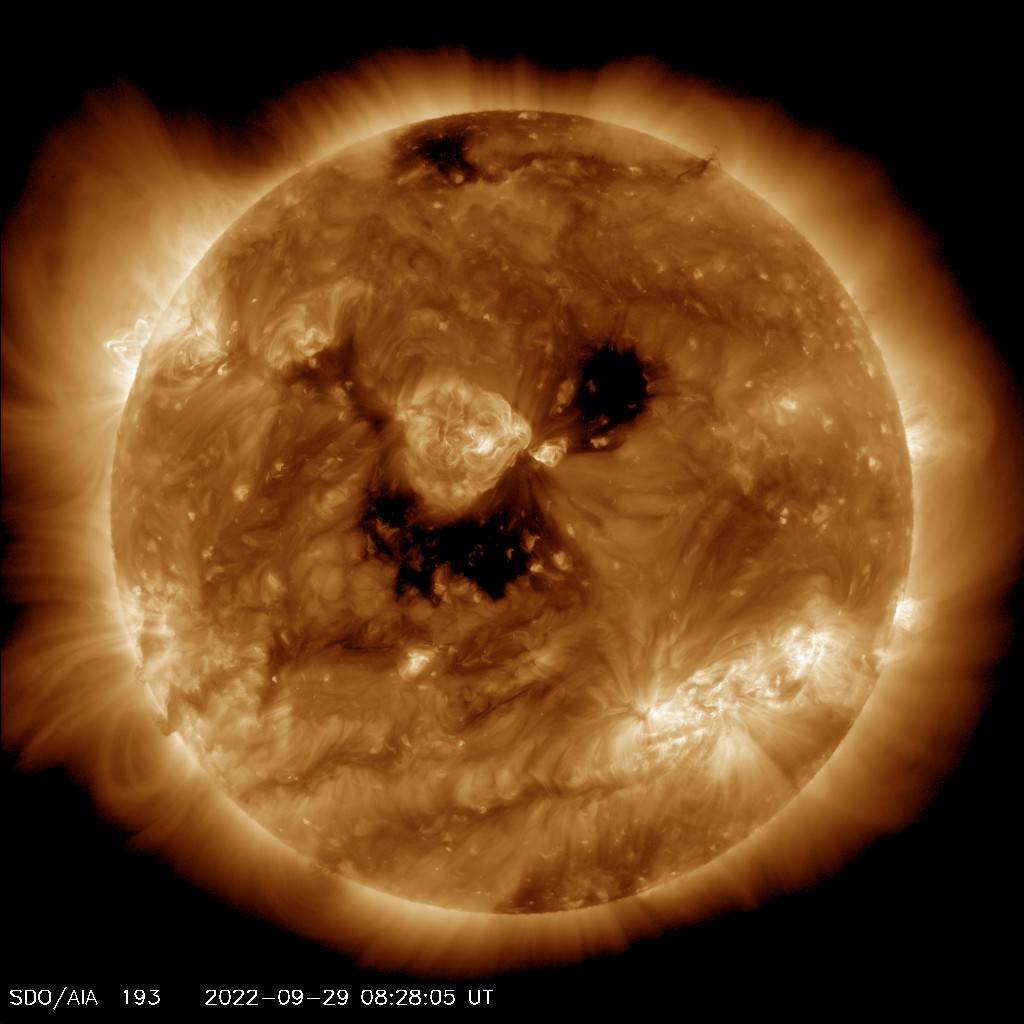Space Weather Alert - 29th September 2022
What Has Happened?
A recurrent coronal hole (CH) is expected to become geoeffective on Friday 30th September 2022. The CH and its associated High Speed Stream (HSS) caused significant geomagnetic activity during the previous solar rotation (4th September 2022). Since then, the CH has extended in longitude and we expect enhanced geomagnetic activity sustained throughout the weekend. Based on the current shape of the CH, it is likely that the activity will start on 30th September, peak on October 1st, and slowly decrease during the following days.
On the previous solar rotation, this coronal hole activity peaked at STORM G3 on the 1st September (see NOAA space weather scales for more details about these storm levels). This weekend, we cannot rule out the possibility of an isolated STORM G3 event.
Assuming clear, dark skies, there is a greater chance of seeing the aurora over the course of the next two evenings. Those in Scotland, northern England and Northern Ireland have a better chance if the weather is favourable on the 30th of September and 1st of October.
Sign-up to receive Geomagnetic Disturbance Alert emails.
Follow us on Twitter:
Follow @BGSauroraAlert for more occasional aurora alerts.
Follow @BGSspaceWeather for daily space weather forecasts.
Glossary
- BGS
- The British Geological Survey is one of the Natural Environment Research Council's Research Centres.
- Coronal Hole
- A region in the Sun’s outer atmosphere (corona) where hot material can flow unrestrained by its magnetic fields out into space.
- High Speed Stream
- A fast moving stream of solar wind, responsible for magnetic storms.
- Solar Wind
- The ever-present expansion of the Sun’s hot outer atmosphere into the solar system, which carries space weather within it.


